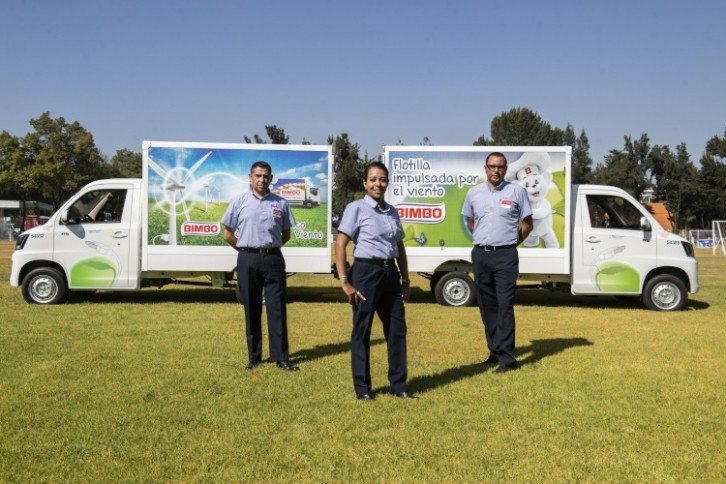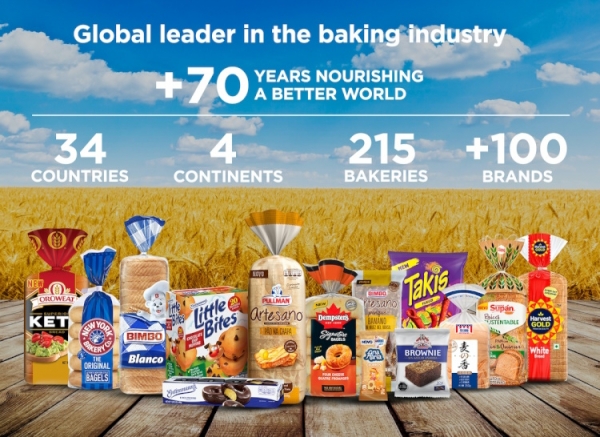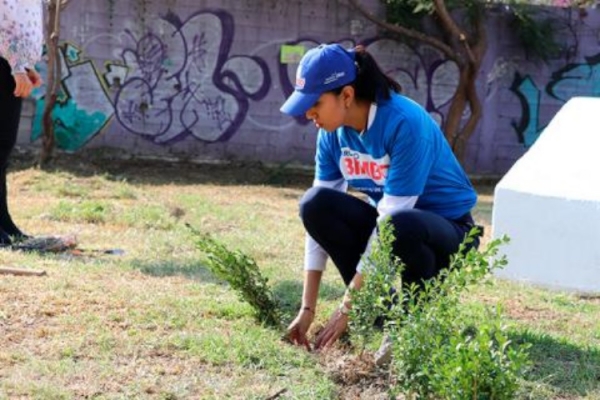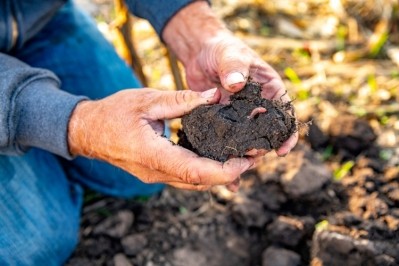Grupo Bimbo is well on track to meet its global zero carbon emission goal by 2050

The maker behind mega brands like Sara Lee, Cinnabon, Oroweat, Rapiditas, Takis and Bimbo QSR, among 100+ others, has the far-reaching ambition to achieve net zero carbon emissions by 2050 in all 34 countries where it has a presence.
Under the RE100 initiative, it also aims to achieve a 100% renewable operation by 2025.
Feedback from the Summit - which was attended by main actors from the company's value chain - revealed it is, in fact, 92% of the way there, with operations in 27 countries already using 100% renewable electricity. Recently, its operations in Mexico, Ecuador, Brazil, South Korea, Guatemala, Kazakhstan and Morocco, along with its QSR businesses in China, were added to the growing list of countries that are operating under 100% electricity from the sun or wind.
“In our journey to become a more sustainable company, we have set concrete goals and ambitions to make this world a better place for present and future generations,” said Daniel Servitje, president and CEO of the company that has been recognised as one of the World's Best by Time Magazine. Servitje himself has earned the recognition as Top Reputation Leader six times in a row.
“Our first Global Sustainability Summit allowed us to share good practices and advances to inspire all attendees to continue working on our planet's preservation.”
Working on the planet’s preservation
The meeting brought the company’s key business partners around a table to thrash out suggestions to tackle current global challenges and review progress under its Sustainability Strategy, which has three pillars: For Nature, For You and For Life.
“Although the goal of net zero carbon emissions by 2050 is very ambitious, we continue to take firm steps with the use of clean electricity and with our sustainable delivery fleet of more than 5,000 vehicles using alternative fuel, of which 2,500 are electric units,” said Rafael Pamias, chief operating officer and chief sustainability officer for Grupo Bimbo.
“Certainly, we have raised our level to become a sustainable company from design."
As part of this decarbonisation process, the company has taken great strides under the ‘For Nature’ pillar.
For example, achievements under its regenerative agriculture axis today means 570 farmers in Mexico have been trained and more than 86,000 hectares of wheat and corn planted using this method.
Regenerative agriculture is an evolution of conventional farming methods to reduce the use of water and other inputs, and prevent land degradation and deforestation. According to the FAO, 24 billion tons of fertile soil are lost annually to erosion, which is putting future food systems at risk, affecting both biodiversity and ecosystems.
The regenerative method - which is growing in popularity around the globe - is designed to protect and improve soil health, biodiversity, climate resilience and water resources, while capturing carbon. At the same time, it also makes farming more productive and profitable, and improves the nutritional contribution of resources.
By 2030, Bimbo’s goal is to add 200,000+ hectares of wheat grown under this method to the list. The company has also committed to obtaining 100% of its primary ingredients from lands cultivated with regenerative agriculture by 2050.
Let’s all be 'buen vecinos'
The Summit also shared progress on its other strategic axes. In the case of the ‘For You’ pillar, 98% of the company’s daily consumption portfolio is already free of artificial flavours and colours. Under the ‘For Life’ pillar, Bimbo implemented more than 230 projects of the Good Neighbour programme in 2022.
The Buen Vecino (‘good neighbour’) programme was launched in 2012 to implement improvements in the communities that surround the company’s factories. By 2000, the company had completed 1,101 projects.
In this way, Grupo Bimbo continues to advance towards its purpose of ‘Nourishing a Better World’ with specific actions to achieve the goals set for 2025, 2030 and beyond.











